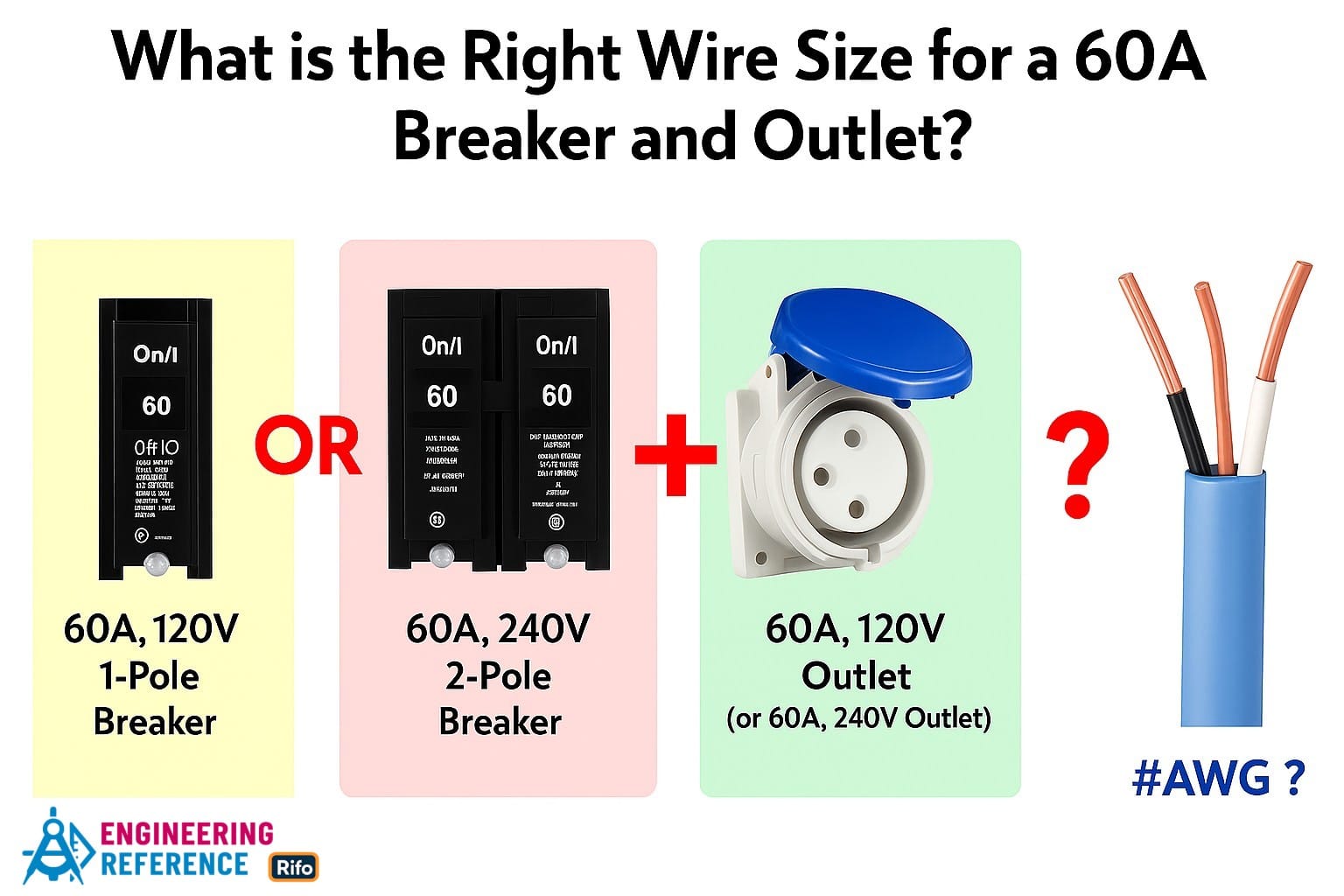Electrical Engineering

How to Wire 120/240V Main Panel – Breaker Box Installation
Wiring Installation of Single Phase 120V & 240V Circuits & Breakers in Main Service Panel In the USA and Canada,…

NEC 2026 Expected Updates for Grounding and EV Chargers
NEC 2026: Expected Electrical Safety Updates for Grounding and EV Charging Systems The upcoming NEC 2026 update is expected to…

What is the Correct Wire Size for 100A Breaker and Load?
How to Determine the Right Wire Size for 100A Breaker and Load Circuits Based on NEC? A 100-amp breaker is…

What is the Right Wire Size for 90A Breaker and Load?
How to Determine the Correct Wire Size for 90A Breaker and Load Circuits Based on NEC? A 90-amp breaker is…

What is the Correct Wire Size for 80A Breaker and Load?
How to Determine the Suitable Wire Size for a 80A Breaker and Load Circuits Based on NEC? An 80A breaker…

What is the Suitable Wire Size for 70A Breaker and Load?
How to Calculate the Correct Wire Size for a 70A Breaker and Load Circuits Based on NEC? A 70-amp breaker…

What is the Right Wire Size for 60A Breaker and Outlet?
How to Determine the Suitable Wire Size for a 60A Breaker and Load Circuits Based on NEC? A 60-amp breaker…

What is the Correct Wire Size for 55A Breaker and Load?
How to Choose the Correct Wire Size for a 55A Breaker and Load Circuits Based on NEC? Choosing the correct…

What is the Suitable Wire Size for 50A Breaker and Outlet?
How to Determine the Correct Wire Size for a 50A Breaker and Load Circuits Based on NEC? 50-Amp breakers and…

What is the Right Wire Size for 45A Breaker and Load?
How to Determine the Correct Wire Size for a 45A Breaker and Load Circuits Based on NEC A 45-amp breaker…

